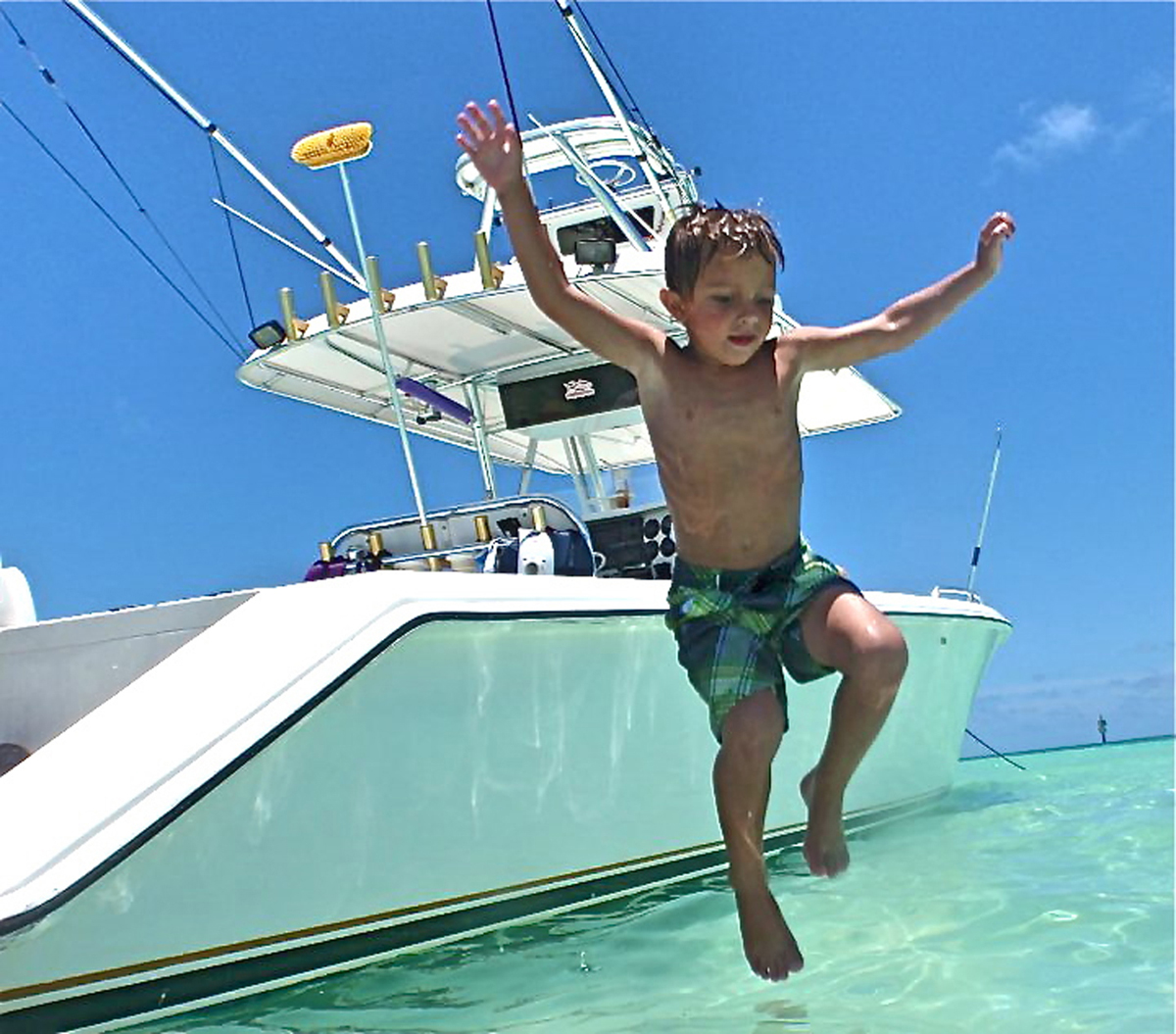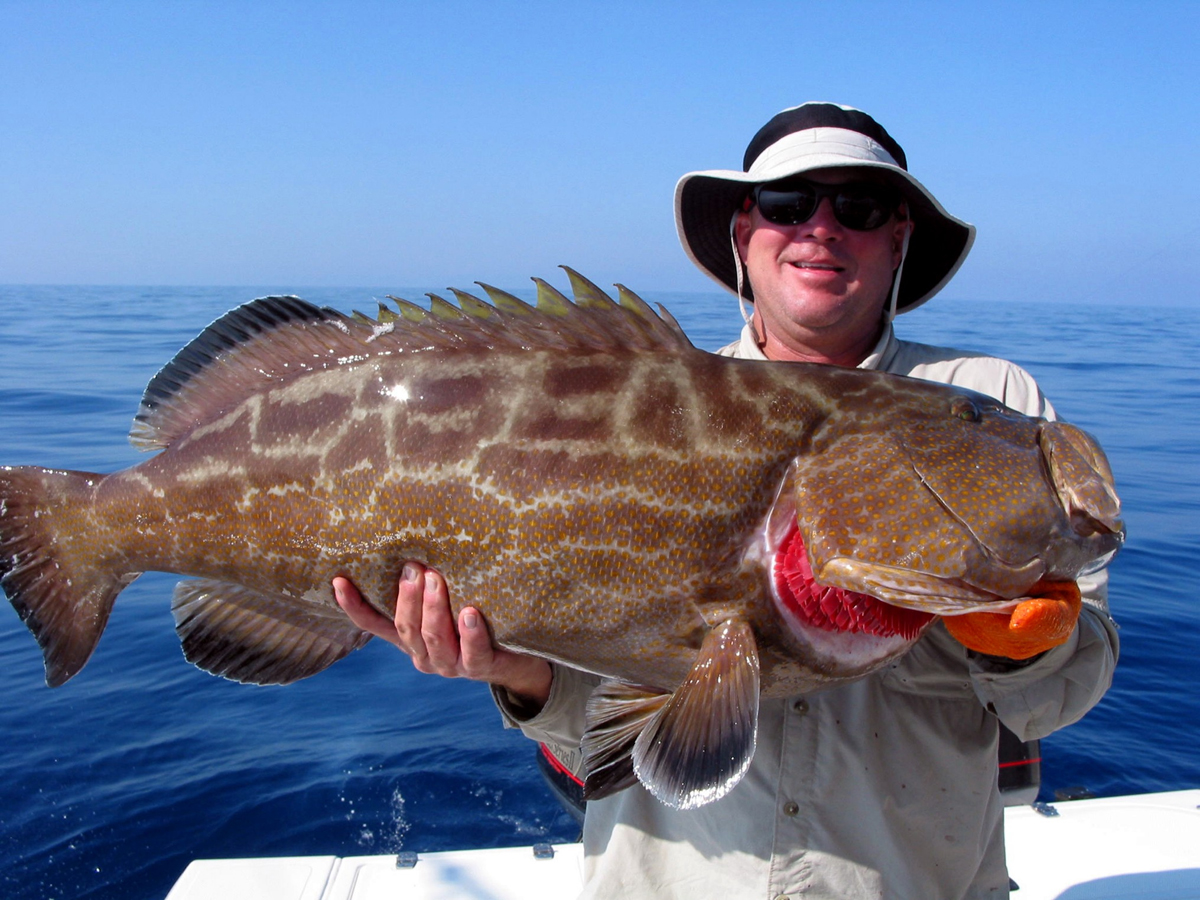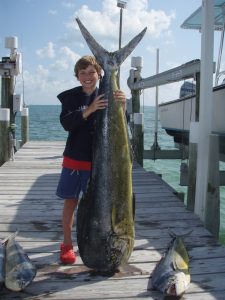July 26, 2012
By Joe Richard, Assistant Editor
A few things to keep in mind when you're preparing to cross in your boat to The Bahamas. Insight into making your own Bahamas expedition.

Jump in, the water's perfect!
Even with new uncertainties over fuel prices, many Florida boats are geared up for peak “crossing over” season, hoping to sample a little paradise in The Bahamas. Where else can you hunt for schooling yellowfin tuna and sample amazing deepwater bottom fishing, within sight of land?
“Just be sure to follow the rules—it's their country,” says Scott LaFave, president of the Jupiter Inlet Offshore Fishing Club (JIOFC), whose members make frequent 64-mile runs to the Walkers and Grand Cay area. “Go through their Customs and register properly. If not, they can take your boat and put you in jail. If you're nice to them, they return the favor. Even simple gifts help—soda, orange juice, Liquid Gain detergent is a favorite. Everything over there is much more expensive, because it's imported. A simple gesture like that can make a difference.”

Big black grouper from a Bahamas reef.
Scott offers a few updated tips for Bahamas crossers:
“If you arrive near Walkers while en route to Grande Cay, save your GPS points for later trips, including your exit,” he says. “You don't want to cross the coral heads randomly. If you damage a lower unit you can return by one engine. Been there, done that, and it's a slow ride home. Otherwise you would have to fly a mechanic over there for repairs. I haven't found a certified Mercury mechanic over there yet, for my boat. On the flip side, I can leave my Mercs idling all night at the dock in Grand Cay, and nobody will bother it. We sleep at Rosie's or Jolly's.”
Which brings up the subject of Yamaha outboards. “I've heard they're still taking boats,” says LaFave. “If you have Yamaha outboards, which are highly valued over there, turn the engines hard over before switching off the ignition. That way, if your boat is silently 'walking off' in the middle of the night, it will keep turning, making it very difficult to tow. If you stay in Port Lucaya, they have video cameras. It's likely no one will show up to stop a boat theft, but at least there will be a video record. The Blue Marlin on West End has incredible security, 24-hour guards and a chain across the harbor at night. That's the place to go, if you're worried about a boat theft. And we always bring our tackle indoors at night, which should be common sense anywhere.”
It's very difficult to plan weeks ahead for a crossing, but summer generally has the good weather. LaFave's club often makes spur-of-the-moment trips, since they live around Jupiter. The tuna-lovers aim for April-June, the best months. The weather first has to warm up. “You're chasing birds all day, and hopefully your radar will pick them up,” LaFave says.
Club members often travel across in groups of boats, and that makes it fun. LaFave also crosses over alone, so his crew carries a ditch-bag with spare radio and other equipment. “I use that Sirius Weather Radio, so I can see serious weather beyond the horizon,” he says. “It plugs into my Raymarine unit and there is lots of good value in it.”
 William Langdale, at the time 9-years old, caught this 55-pound dolphin off Marsh Harbour April 9, 2010.
William Langdale, at the time 9-years old, caught this 55-pound dolphin off Marsh Harbour April 9, 2010.
As for fish limits, you can still keep 18 pelagic fish, and 60 pounds of bottom fish fillets. “If you catch an extra ‘cuda, the locals love them and they'll often clean your boat spotless as a trade-out,” says LaFave. “We either look for birds and tuna, or do a lot of deep-dropping. Another option is drift-fishing at night for big mutton snapper.”
“You don't see fuel bladders hauled across on our boats, just credit cards,” says Jupiter member Kent Malinowski. “Prices there are usually one or two dollars more than marina prices here, so figure $5 to $6 a gallon. A lot of boat owners bring five buddies, to split up the fuel cost. The trick over there is getting fuel when the marinas have it, since the delivery barge arrives once a week or even two weeks. You can get stuck over there, waiting for more.”
Even with high fuel prices, five or more days in a paradise setting certainly seems worth it.
For complete regulations, visit www.bahamas.com/boating. Among other items you'll find there is a link to the Bahamas Boating and Fishing Guide. Pay special attention to the sections on Procedures for Entering and Procedures for Returning.
FS

